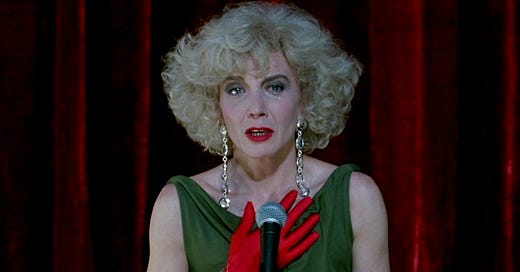Since September, almost the only thing I’ve been watching is the work of the Spanish writer-director Pedro Almodóvar, and I highly recommend this kind of focused investigation of a single auteur. (Agnes Varda is next.)
Prior to this I had seen a couple of his films and I’d liked them, but looking at his entire body of work and seeing the themes that recur has been really rewarding and exciting. I’m a little more than half way done with seeing his 23 features.
The first thing that stands out about them is that they are almost exclusively populated with strong, complex female characters. I defy anyone to name another male director who even comes close to him in this regard.




